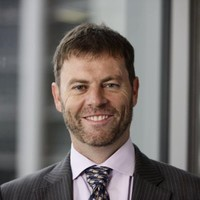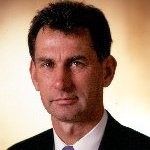Surge in Aussie fintech as banks withdraw from advice
Once upon a time, in the 1980s, Australia was a world leader in the provision of systems to allow the development of master trusts and better efficiencies for advisers. Then the banks took over.
Now, according to Wealth02 director Darren Pettiona, the US is “way ahead of Australia in fintech”. But that is about to change.

Pettiona, with Wealth02 founder, Shannon Bernasconi, and the company’s chairman, Neil Roderick said at a briefing last week (March 24) that the “gatekeepers” – the banks – were gone. “The guys who controlled distribution and presented all the obstacles have been removed,” Pettiona said. “I think there will be more change in the next two years than there has been in the past 15 years.”
An investment platform, where Westpac/BT’s Panorama is being challenged by HUB24, Asgard, Netwealth and others among the big players and all are being challenged by cloud-based start-ups such as Wealth02, has become a critical application for the adviser’s engagement with clients.
Pettiona said Australia would continue its trend similar to that in the UK, with a lot of self-licencing by advisers and more smaller licensees. Consumers were also ready to move, he said.
Roderick, who founded the Macquarie Wrap during his 14 years at the bank, retiring in 2013, said that the managed accounts part of the industry really started to take off when they started to appear on platforms. He traces the birth of platforms back to about 1983 in Perth where a group of accountants formed an administration service called Excelsior. This ultimately failed as a business because it was not scalable enough to permit a lot of growth.
This was followed by what became the now Westpac-owned Asgard, also emanating from Perth, and the BT Wrap about 1997, followed by the Macquarie Wrap. With Panorama, the decision to include managed accounts on the vast investment menu was another step change for the industry.
Roderick said that it took about 15 years for the platform market to reach $36 billion, in 1998, which was still a lot of money for the time. He estimates that it is currently handling between $800-900 billion, with managed accounts making up $95 billion, not all of which are available on platforms.

He sees the next step change in platforms being represented by Wealth02, which has been configured differently for managed accounts. “That’s what drew me back when Shannon started Wealth02 [in 2015] and asked me to be involved,” he said.
Bernasconi said the cloud-based technology for Wealth02 allowed more agility for users at a lower cost. “We need fewer people,” she said. “So, we can afford to charge only 15bps but my competitors can’t. We have no product base to promote and we don’t charge to handle cash… An adviser can control more of the margins in the value chain but, overall, the investor pays less.”
Weallth02’s fee for investment clients is 15bps, and for pensions and super clients it is 35bps as a product fee with embedded admin. Both fees are capped. “There is no fee added to the professional model managers as is the case of SMA’s and there is certainly no MER uplift or similar or WealthO2 investment products,” Bernasconi said. She estimates that comparing the standard quoted rates with the big four platforms, the saving on a $500,000 Wealth02-administered portfolio is between 15.6bps and 34.4bps, assuming 5 per cent in cash.
The platform currently has 87 practices using the system, with about 4,500 end clients, having grown through the COVID period. The next enhancement being looked at now involves integration of financial planning workflows with the platform.











